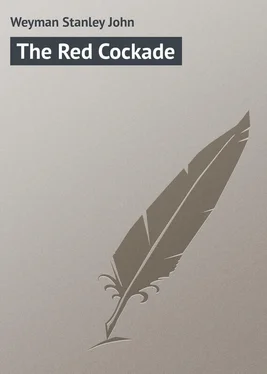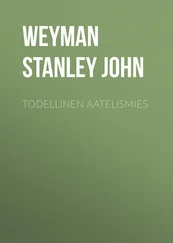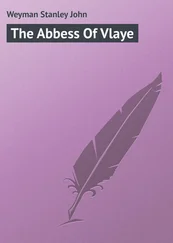Stanley Weyman - The Red Cockade
Здесь есть возможность читать онлайн «Stanley Weyman - The Red Cockade» — ознакомительный отрывок электронной книги совершенно бесплатно, а после прочтения отрывка купить полную версию. В некоторых случаях можно слушать аудио, скачать через торрент в формате fb2 и присутствует краткое содержание. Жанр: foreign_prose, на английском языке. Описание произведения, (предисловие) а так же отзывы посетителей доступны на портале библиотеки ЛибКат.
- Название:The Red Cockade
- Автор:
- Жанр:
- Год:неизвестен
- ISBN:нет данных
- Рейтинг книги:4 / 5. Голосов: 1
-
Избранное:Добавить в избранное
- Отзывы:
-
Ваша оценка:
- 80
- 1
- 2
- 3
- 4
- 5
The Red Cockade: краткое содержание, описание и аннотация
Предлагаем к чтению аннотацию, описание, краткое содержание или предисловие (зависит от того, что написал сам автор книги «The Red Cockade»). Если вы не нашли необходимую информацию о книге — напишите в комментариях, мы постараемся отыскать её.
The Red Cockade — читать онлайн ознакомительный отрывок
Ниже представлен текст книги, разбитый по страницам. Система сохранения места последней прочитанной страницы, позволяет с удобством читать онлайн бесплатно книгу «The Red Cockade», без необходимости каждый раз заново искать на чём Вы остановились. Поставьте закладку, и сможете в любой момент перейти на страницу, на которой закончили чтение.
Интервал:
Закладка:
"M. le Vicomte de Saux?"
I stood up. I spoke, my voice sounding harsh, and like another man's. "I dissent from this cahier!" I cried.
I expected an outburst of wrath; it did not come. Instead, a peal of laughter, in which I distinguished St. Alais' tones, rang through the room, and brought the blood to my cheeks. The laughter lasted some time, rose and fell, and rose again; while I stood pilloried. Yet this had one effect the laughers did not anticipate. On occasions the most taciturn become eloquent. I forgot the periods from Rochefoucauld and Liancourt, which I had so carefully prepared; I forgot the passages from Turgot, of which I had made notes, and I broke out in a strain I had not foreseen or intended.
"Messieurs!" I cried, hurling my voice through the Chamber, "I dissent from this cahier because it is effete and futile; because, if for no other reason, the time when it could have been of service is past. You claim your privileges; they are gone! Your exemptions; they are gone! You protest against the union of your representatives with those of the people; but they have sat with them! They have sat with them, and you can no more undo that by a protest than you can set back the tide! The thing is done. The dog is hungry, you have given it a bone. Do you think to get the bone back, unmouthed, whole, without loss? Then you are mad. But this is not all, nor the principal of my objections to this cahier. France to-day stands naked, bankrupt, without treasury, without money. Do you think to help her, to clothe her, to enrich her, by maintaining your privileges, by maintaining your exemptions, by standing out for the last jot and tittle of your rights? No, Messieurs. In the old days those exemptions, those rights, those privileges, wherein our ancestors gloried, and gloried well, were given to them because they were the buckler of France. They maintained and armed and led men; the commonalty did the rest. But now the people fight, the people pay, the people do all. Yes, Messieurs, it is true; it is true that which we have all heard, ' Le manant paye pour tout! '"
I paused; expecting that now, at last, the long-delayed outburst of anger would come. Instead, before any in the Chamber could speak, there rose through the windows, which looked on the market-place, and had been widely opened on account of the heat, a great cry of applause; the shout of the street, that for the first time heard its wrongs voiced. It was full of assent and rejoicing, yet no attack could have disconcerted me more completely. I stood astonished, and silenced.
The effect which it had on me was slight, however, in comparison with that which it had on my opponents. The cries of dissent they were about to utter died stillborn at the portent; and, for a moment, men stared at one another as if they could not believe their ears. For that moment a silence of rage, of surprise, prevailed through the whole Chamber. Then M. de St. Alais sprang to his feet.
"What is this?" he cried, his handsome face dark with excitement. "Has the King ordered us, too, to sit with the third estate? Has he so humiliated us? If not, M. le President-if not, I say," he continued, sternly putting down an attempt at applause, "and if this be not a conspiracy between some of our body and the canaille to bring about another Jacquerie-"
The President, a weak man of a Robe family, interrupted him. "Have a care, Monsieur," he said. "The windows are still open."
"Open?"
The President nodded.
"And what if they are? What of it?" St. Alais answered harshly. "What of it, Monsieur?" he continued, looking round him with an eye which seemed to collect and express the scorn of the more fiery spirits. "If so, let it be so! Let them be open. Let the people hear both sides, and not only those who flatter them; those who, by building on their weakness and ignorance, and canting about their rights and our wrongs, think to exalt themselves into Retzs and Cromwells! Yes, Monsieur le President," he continued, while I strove in vain to interrupt him, and half the Assembly rose to their feet in confusion, "I repeat the phrase-who, to the ambition of a Cromwell or a Retz add their violence, not their parts!"
The injustice of the reproach stung me, and I turned on him. "M. le Marquis!" I cried hotly, "if, by that phrase, you refer to me-"
He laughed scornfully. "As you please, Monsieur," he said.
"I fling it back! I repudiate it!" I cried. "M. de St. Alais has called me a Retz-a Cromwell-"
"Pardon me," he interposed swiftly; "a would-be Retz!"
"A traitor, either way!" I answered, striving against the laughter, which at his repartee flashed through the room, bringing the blood rushing to my face. "A traitor either way! But I say that he is the traitor who to-day advises the King to his hurt."
"And not he who comes here with a mob at his back?" St. Alais retorted, with heat almost equal to my own. "Who, one man, would brow-beat a hundred, and dictate to this Assembly?"
"Monsieur repeats himself," I cried, cutting him short in my turn, though no laughter followed my gibe. "I deny what he says. I fling back his accusations; I retort upon him! And, for the rest, I object to this cahier, I dissent from it, I-"
But the Assembly was at the end of its patience. A roar of "Withdraw! withdraw!" drowned my voice, and, in a moment, the meeting so orderly a few minutes before, became a scene of wild uproar. A few of the elder men continued to keep their seats, but the majority rose; some had already sprung to the windows, and closed them, and still stood with their feet on the ledge, looking down on the confusion. Others had gone to the door and taken their stand there, perhaps with the idea of resisting intrusion. The President in vain cried for silence. His voice, equally with mine, was lost in the persistent clamour, which swelled to a louder pitch whenever I offered to speak, and sank only when I desisted.
At length M. de St. Alais raised his hand, and with little difficulty procured silence. Before I could take advantage of it, the President interposed. "The Assembly of the noblesse of Quercy," he said hurriedly, "is in favour of this cahier, maintaining our ancient rights, privileges, and exemptions. The Vicomte de Saux alone protests. The cahier will be presented."
"I protest!" I cried weakly.
"I have said so," the President answered, with a sneer. And a peal of derisive laughter, mingled with shouts of applause, ran round the Chamber. "The cahier will be presented. The matter is concluded."
Then, in a moment, magically, as it seemed to me, the Chamber resumed its ordinary aspect. The Members who had risen returned to their seats, those who had closed the windows descended, a few retired, the President proceeded with some ordinary business. Every trace of the storm disappeared. In a twinkling all was as it had been.
Even where I sat; for no isolation, no division from my fellows could exceed that in which I had sat before. But whereas before I had had my weapon in reserve and my revenge in prospect, that was no longer so. I had shot my bolt, and I sat miserable, fettered by the silence and the strange glances that hemmed me in, and growing each moment more depressed and more self-conscious; longing to escape, yet shrinking from moving, even from looking about me.
In this condition not the least of my misery lay in the reflection that I had done no good; that I had suffered for a quixotism, and shown myself stubborn and obstinate to no purpose. Too late, I considered that I might have maintained my principles and yet conformed; I might have stated my convictions and waived them in deference to the majority. I might have-
But alas! whatever I might have done, I had not done it; and the die was cast. I had declared myself against my order; I had forfeited all I could claim from my order. Henceforth, I was not of it. It was no fancy that already men who had occasion to pass before me drew their skirts aside and bowed formally as to one of another class!
Читать дальшеИнтервал:
Закладка:
Похожие книги на «The Red Cockade»
Представляем Вашему вниманию похожие книги на «The Red Cockade» списком для выбора. Мы отобрали схожую по названию и смыслу литературу в надежде предоставить читателям больше вариантов отыскать новые, интересные, ещё непрочитанные произведения.
Обсуждение, отзывы о книге «The Red Cockade» и просто собственные мнения читателей. Оставьте ваши комментарии, напишите, что Вы думаете о произведении, его смысле или главных героях. Укажите что конкретно понравилось, а что нет, и почему Вы так считаете.












